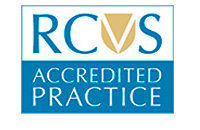Canine Cancer - Vet's FAQ
Why vets choose RVC for canine oncology referral cases
The RVC is Europe's largest multi-disciplinary hospital offering a variety of services with experts in their field. The medical oncology service greatly benefits from this as it is one of the few disciplines requiring input from different services. Expert input is often necessary to create the most effective individual patient plan. We liaise with our surgery team to discuss complicated cases requiring reconstructive surgeries, surgeries for diagnostic purposes (biopsies of abdominal organs, pericardectomies) and tumour reduction to increase our chances of chemotherapy working effectively and / or to facilitate radiotherapy for microscopic disease.
Referring Vets FAQs about Canine Cancer Cases
How can referring vets communicate with the RVC small animal oncology team?
Urgent cases which require immediate advice: please call our reception team and ask to be put through to an oncologist. Although, there will be occasions where we cannot come to the phone immediately - a message can be given to Reception so we can make sure to return your call as soon as possible.
Non-urgent cases: The best way to make a referral is to submit your referral online . We aim process referrals as quickly as possible.
What happens after a canine oncology referral has been submitted to the RVC?
You will be asked to provide us with all necessary patient information (complete history, blood test results, cytologies, histopathology if relevant) to correctly determine the urgency of the case. Following this our reception staff will contact the client directly to organize for an appropriate appointment slot suiting both the client as well as our oncology team.
Please ensure we are provided with:
- the pets’ full history
- any test results (bloods,cytologies,histopathology)
By providing us with comprehensive background information - this will help ensure the best possible care for our mutual patient and client.
How does the RVC small animal oncology team keep the referral vet informed about a patient's progress?
Following referral we will inform you about all tests undertaken and their results in writing and will also keep you in the loop about ongoing management. We also strive to involve you in our patients’ management; this may involve administration of chemotherapy treatments, physical examinations and blood tests. We will always inform you about this in advance either in writing or over the phone.
What does facilities/services does the RVC offer for canine cancer patients?
- Medical Oncology
- Chemotherapy and supportive care
- Clinical stage determination
- Electrochemotherapy
- Discussion of palliative care options
- Diagnostic imaging
- Radiographs
- Ultrasonography
- MRI
- CT
- Clinical Pathology and Pathology Services
- Surgery – provided by the RVC soft tissue or orthopaedic team dependent on the case
What non-surgical treatments can the RVC provide for canine cancer referrals?
- Lymphoma
- CHOP protocol
- COP protocol
- Various rescue protocol options
- Cytarabine infusions for bone marrow / CNS / renal involvement
- Rabacfosadine
- Mast cell tumour
- Various classic chemotherapy options
- Toceranib phosphate
- Masitinib
- Imatinib
- Stelfonta
- Melanoma
- Melanoma vaccine
- Various chemotherapy options
- Sarcomas and carcinomas
- Various chemotherapy options (intravenous as well as intracavitary if required)
- Mesothelioma
- Various chemotherapy options (intravenous as well as intracavitary if required)
- Treatment of scar tissue (following incomplete excision of tumours such as mast cell tumours, soft tissue sarcomas, etc.)
- Electrochemotherapy
- Discussion of radiotherapy options (Referral will be required to another centre if client wishes to proceed with this option. Our senior clinicians have worked in centres offering radiotherapy and are therefore experienced to discuss valid options and arising side effects.)
- Squamous cell carcinomas (nose, pinna)
- Electrochemotherapy

